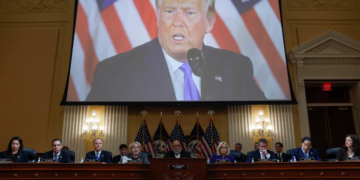In a fast-evolving geopolitical flashpoint, tensions between the us and China have surged once again over military operations in the South China Sea. Analysts describe this as one of the most serious escalations since the height of the Trump administration, with both nations sending warships and issuing sharp warnings.
The South China Sea, a vital waterway for global trade, remains at the center of a struggle for power and influence that affects allies, trade routes, and global stability.
The Latest Incident
Recent satellite imagery shows new Chinese fortifications on disputed reefs, alongside increased naval patrols. The us Navy responded by dispatching two guided-missile destroyers for “freedom of navigation” operations, aimed at challenging Beijing’s sweeping territorial claims.
China’s foreign ministry condemned these moves, warning of “serious consequences” if Washington continued what it calls “provocations.”
Why It Matters
Roughly one-third of global shipping passes through the South China Sea. Beyond trade, the region holds significant untapped oil and gas reserves, making it a strategic and economic prize.
For Beijing, control symbolizes regional dominance. For Washington and allies, it’s about preserving open seas and international law.
Trump’s Legacy
Former president donaldtrump ramped up U.S. military presence in the region, framing China’s island-building as a direct threat to global trade and security. His administration also boosted ties with countries like Vietnam and the Philippines.
Critics say Trump’s strategy risked military confrontation, while supporters argue it deterred further Chinese expansion.
The Biden Administration’s Approach
Though style has changed, policy has not shifted dramatically. The U.S. continues regular naval patrols and military exercises, underscoring its commitment to allies and freedom of navigation.
Analysts note the bipartisan nature of concern over China’s ambitions.
Regional Responses
Countries bordering the South China Sea, including Vietnam, the Philippines, Malaysia, and Brunei, remain caught between economic ties with China and security reliance on the us.
Leaders fear being forced to choose sides, while public opinion often leans toward resisting Chinese control.
Economic Stakes
Beyond military dynamics, the dispute has major economic consequences. Global supply chains rely on safe shipping lanes. A serious conflict could disrupt trade, raise prices, and affect industries worldwide.
Economists linked to the federalreserve warn that markets remain vulnerable to geopolitical shocks.
China’s Strategy
Beijing uses a mix of military power, economic incentives, and legal arguments to advance its claims. Artificial islands now host radar systems, runways, and missile sites.
China argues it has historical rights, while international courts have rejected those claims.
The Role of International Law
In 2016, an international tribunal ruled against China’s expansive claims. Beijing rejected the verdict. The U.S. and allies cite this ruling as legal grounds for patrols.
Legal experts at columbia university emphasize the importance of upholding global norms to prevent might-makes-right conflicts.
Risk of Miscalculation
Naval experts warn the greatest danger isn’t deliberate war but accidents: close encounters between warships or aircraft could spark a broader conflict neither side intends.
Communication hotlines and military dialogues aim to reduce this risk, but tensions remain high.
Public Sentiment
Chinese media portrays U.S. patrols as aggression. American outlets, including foxnews, often frame China’s moves as expansionism.
This shapes public opinion, making diplomatic compromise harder.
Broader U.S.–China Rivalry
The South China Sea dispute fits into a larger struggle over trade, technology, and global influence. From tariffs to semiconductor bans, tensions touch every part of the relationship.
For many analysts, the sea is both symbol and stage of great power competition.
Allies Watch Closely
Japan, Australia, and European powers have joined freedom of navigation missions,













